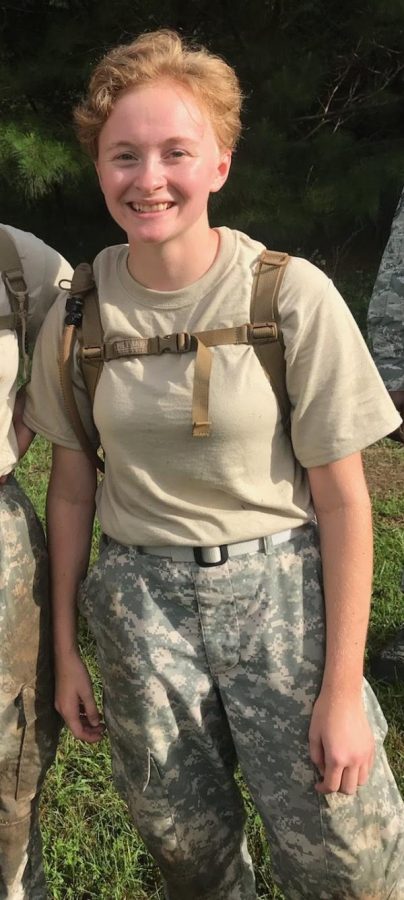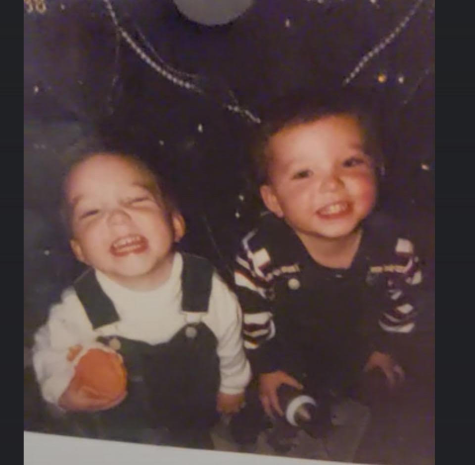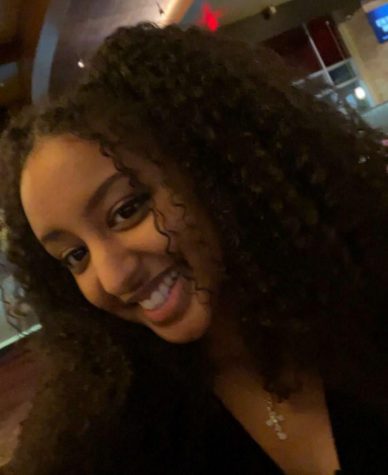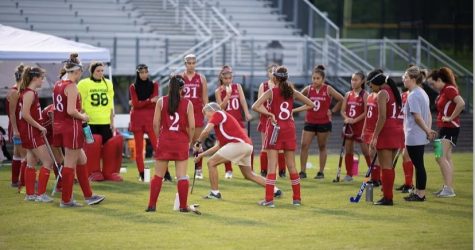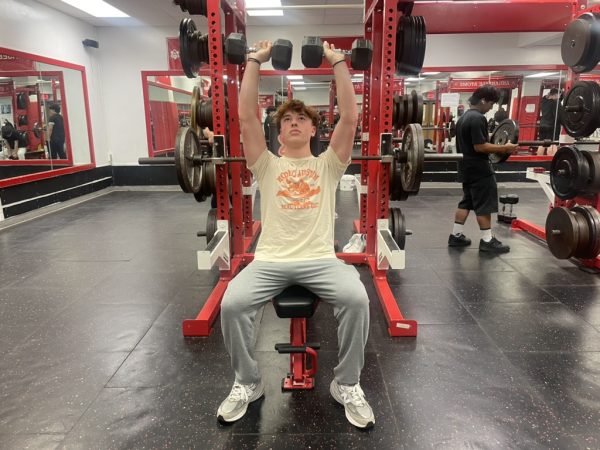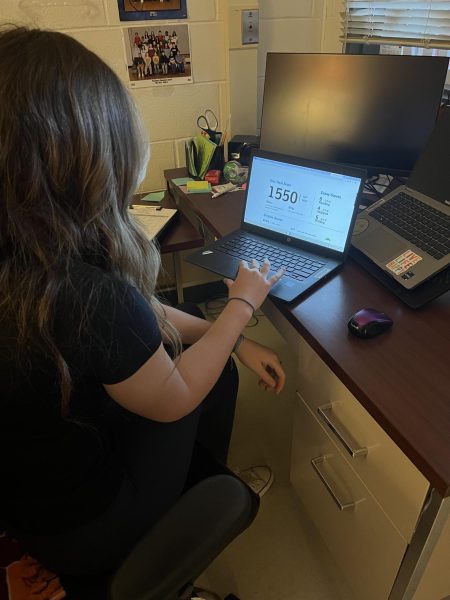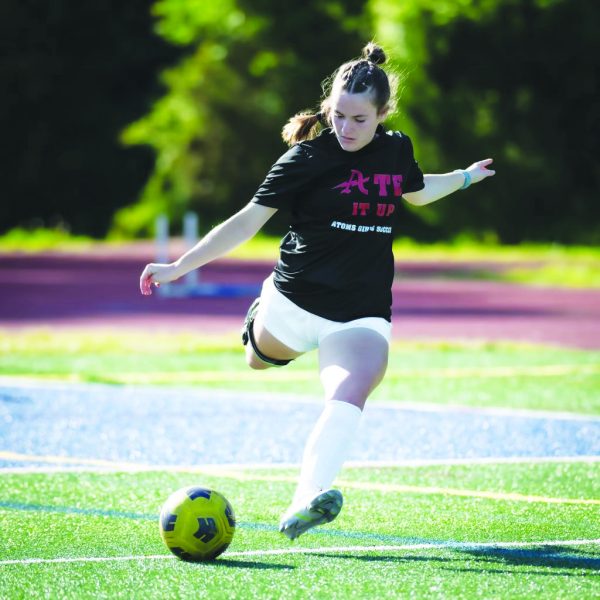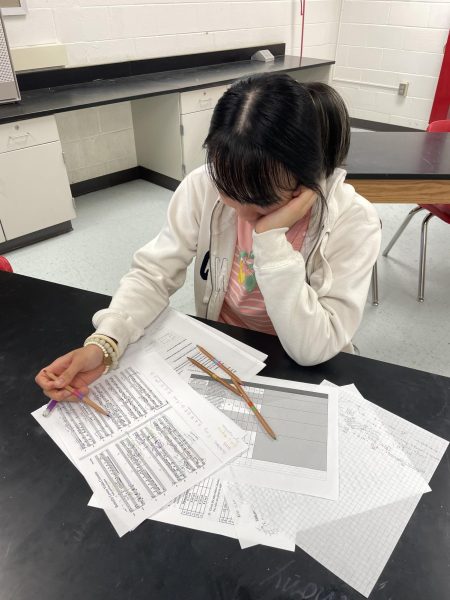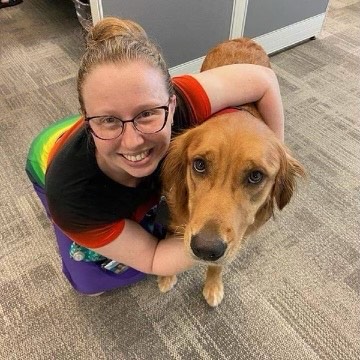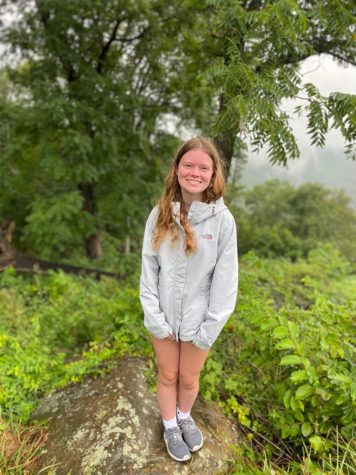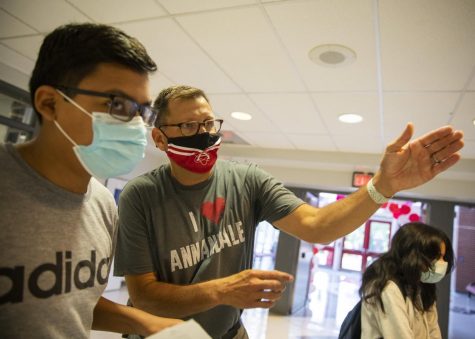Life after high school: Student aspires to join the military
Senior Kataryna Vejcik poses in her Academy Combat Uniform at a JROTC retreat.
As the middle of the year inches closer, many seniors are left scrambling to figure out what they want to do with their lives after graduation. College is typically the most common route, but many students opt to go into the armed forces instead. Senior Kataryna Vejcik is one of those students who has shown interest in eventually joining the military after high school.
People make this decision for a number of social, economic, and personal reasons. Vejcik’s connection to the armed forces comes from her family; her grandfather was an officer in the United States Air Force. “He was a big inspiration to me because I would grow up hearing different stories of him about how great of a person he was and stuff so I wanted to be like him,” said Vejcik.
Another decision to be made is which of the three branches of the military to join: Army, Navy, Air Force, or Marines.
When asked if there is a specific military branch she is interested in, Vejcik replied that they’re more focused on getting into the Air Force but is generally interested in all three branches. “I’m interested in doing lots of different jobs and MOS really interests me. I can find a place in any of the three branches.” MOS, Military Occupational Specialties, is the name given to jobs in the Army.
After setting a desired career path, it’s important to have a good plan to help reach one’s goals. To help prepare herself, Vejcik is currently enrolled in JROTC (Junior Reserve Officer Training Corps), which is offered at the academy at West Potomac High School.
Before enlisting, prospective officers must first complete training and education at one of the military branch academies. Vejcik has begun to look into and apply to academies and different scholarships earlier this school year, including an application for the Congressional and Senator Nominations which she completed earlier this month. Reflecting on the process, Vejcik noted with a laugh: “[It] was interesting…a little stressful as most college applications are.”
As mentioned earlier, there are a plethora of jobs available for people in all branches of the military. Vecjik is especially interested in studying nuclear engineering and Russian, as well as a smaller interest in being a pilot, though she’s not as sure about that one.
“There are different small things that I’m really interested in studying and getting to know better. Also, I’d like my education to be paid for. I would also like a secure job after completing my education so it all works out.”
Vecjik is referring to the programs offered by the armed forces in which they pay for students to complete a four-year education; an appealing option in today’s economic climate of crushing academic debt. Job security is another source of appeal for prospective officers, with graduates coming out of training already working in their desired field.
Many underclassmen have already begun to think about what they want to do in the future. With so many career options to choose from, it can be overwhelming to get through all of the deadlines and choose exactly what you want to do with your life.
Vejcik’s advice for underclassmen attempting to pursue a military path is that it’s always good to start early. “Due dates are so much closer than you think and it’s a lot harder to go through with an application if you open it like a week before it’s due.”
She then adds, “don’t be worried if you don’t know exactly what you want to do; you don’t have to and you don’t need to and you can always change what you want to do. If you find that the choice you made was the wrong one you can always just change what you did and start something new.”
The military is not her only interest. At school, she plays as goalie on the varsity field hockey team in the fall, as well as on the lacrosse team in the spring. She’s also involved in theatre, though not as much as when she was an underclassman. It is possible, and necessary, to remain well-rounded no matter what career path you take. It’s also important to continue to have fun in school, as you’re only in high school once.
In addition to JROTC, other milestones to complete in preparation for military education includes the ASVAB test, a military aptitude test administered in high school.
Vejcik herself has not yet completed the official ASVAB test at school, but has been taking practice tests to prepare.
When asked what else she does to prepare, she said: “I keep up with my sport, do extra strength exercises, and run outside of practices.” It’s important to practice fitness and endurance as well, being that there is also a physical component to military entrance exams.
Resources available in school include recruiters at JROTC academies and guidance and career counselors. Of the student services center at AHS, she says that “they have been more than helpful and accommodating!”
Vejcik has talked to a couple different recruiters that visit the school (both Annandale and West Potomac) that are from all four of the branches, and has been meeting with her counselor for assistance with the whole process.
“It’s interesting to compare the different branches and ask what makes their service different from the rest,” said Vejcik.
AHS also holds Academy Nights at school, some of which Vejcik has attended in past years.
She says that they gave her a lot of insight and motivation to keep going. “The recruiters there are very good at what they do!”
If you are also interested in pursuing a career in the military, you can visit the Career Center or your counselor in the Student Services office. Academies continue to host college visits, so keep your eyes peeled!
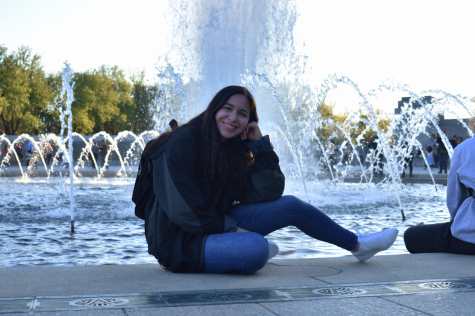
Senior Karla Mercado Dorado is the editor for the People page. This is her first year working on the paper as an editor. She is a player on the Varsity...



